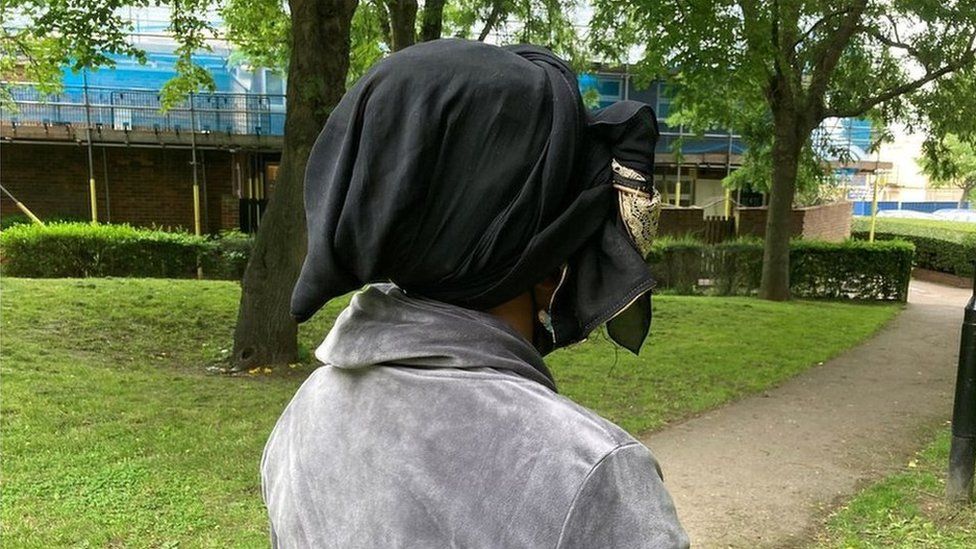Asylum queue nine times longer than 10 years ago
- Published

The number of migrants waiting in the UK for their asylum claims to be processed was nine times higher by the end of last year than it was in 2010.
One is Patricia, 19, who fled war and abuse in Liberia and says her mental health has suffered during the two years she has waited for a decision.
There are currently 65,000 people in the queue, official figures obtained by the Refugee Council suggest.
The Home Office said it had a plan to "fix the broken asylum system".
The Refugee Council obtained the figures from the Home Office under Freedom of Information legislation.
The organisation's analysis shows the pandemic has contributed to a backlog which rose by a quarter in 2020.
The figures show:
- the number of people waiting for an initial decision for more than a year rose almost tenfold from 3,588 in 2010 to 33,016 in 2020
- the number of children awaiting an initial decision for more than a year rose more than twelvefold from 563 children in 2010 to 6,887 in 2020
- and 55 applicants who applied as children have been waiting five years or more for a decision.
Asylum seekers have told the BBC how being in limbo has affected their mental health.
Fleeing abuse
Patricia, who asked not to use her real name, told the BBC she was given up by her family as a baby in war-torn Liberia.
In her teens, abuse from her foster family forced her to run away.
People traffickers brought her to Britain two years ago, aged 17, and she claimed asylum.
Initially, officials said they would respond to her application "as soon as possible" and talked about looking at the case "for 45 days".
"The 45 days has taken more than two years now," she says.
Having her life put on hold for so long "has had a big effect," she says.
"I can't sleep well. I can't do anything good that I have to do".
Without an asylum decision, she cannot work, find a permanent home or take part in the vocational part of her college course.
Having lost touch with her family years ago, Patricia has no support and she describes the wait as a "very tough time for me".
Political persecution
Kemal was a maths teacher before he said he had to flee persecution by the Turkish government because of his links to the banned Gulenist movement.
The only contact he has had with his wife and children for two years is through the internet.
He lives in shared accommodation in Gateshead but the Home Office has yet to provide an initial ruling on whether his claim to have suffered political persecution in Turkey entitles him to refugee status.
He says the wait has made him anxious and depressed.
"I was down, gloomy every day... for example last year, around three months... I just cannot sleep, something happening in my throat... I don't know what's happening.
"If I didn't have faith, I could do myself bad things."
Refugee Council chief executive Enver Solomon says the backlog should be top of the agenda when it comes to reform of the asylum system.
"If you look at what the government has published, its proposals to reform the asylum system, there's nothing in it that talks about backlogs and delay, there's nothing in it which sets out a plan to address this problem."
The Home Office told the BBC it had a plan to "fix the broken asylum system, which has been abused by those who have come here illegally, leading to increased numbers in the system and preventing genuine cases being looked at quickly.
"This is the most significant overhaul of our asylum system in decades, which will increase the fairness and efficacy of our system so that we can better protect and support those in genuine need of asylum.
"We are working to streamline cases and have already made significant progress in prioritising those with acute vulnerability but we are determined to clear the backlog to help speed up decisions and prevent people remaining in the system for long periods of time."